Nepal Health Research Council (NHRC) hosted the Eighth National Summit of Health Population and Scientists in Nepal from 10th – 12th April 2022 in Kathmandu with the theme of ‘Advancing Health Policy and Systems Research: Lessons for a Resilient Health System in Nepal. The NHRC is the entity of the Government of Nepal (GoN) entrusted with regulating, coordinating, and promoting high-quality health and population research in Nepal. Since 2015, the NHRC has been hosting the annual summit of health and population scientists to generate knowledge through high-quality research and promote the use of evidence in decision-making by fostering dialogue between researchers, implementers and policymakers.
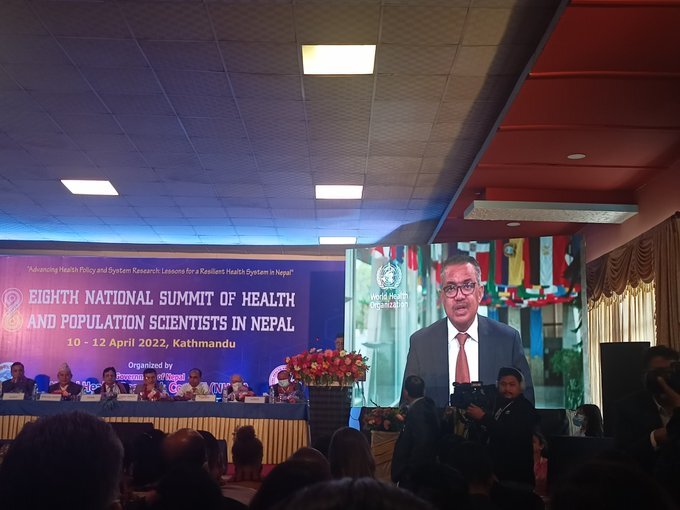
The Eighth National Summit is a continuation of previous summits as an annual gathering of researchers, scholars, scientists, practitioners, and policymakers to exchange opinions and health research evidence on health issues and priorities. It also focuses on lessons from Nepal’s response to COVID19 and previous disasters.

HERD International is one of the partners of NHRC to support the annual conference. HERD International team made five oral presentations on different sub-themes under resilient health systems.
Presenters
Ms. Shophika Regmi
HERD International’s Senior Manager, Ms. Shophika Regmi made an oral presentation on “Understanding health system resilience to respond to COVID-19: a case study of COVID-19 policies formulation, communication and health workforce management in Nepal”. Drawing from the finding, she highlighted that the health sector responses were sufficient in dealing with the pandemic which called for effective policy communication and coordination among different tires of the governments Stronger governance and leadership from federal and local governments are needed to support and sustain health workers during the pandemic, she said.
Mr Achyut Raj Pandey
HERD International’s Senior Research Fellow, Mr. Achyut Raj Pandey presented on “Understanding and strengthening health governance and planning for resilient local health systems: findings from a participatory action research’’. He highlighted that improving the database and evidence use capacity, improved the availability of health workers and logistics, and preparing the non-health sector for emergency response could be useful in strengthening the local health system resilience capacity.
Mr. Achyut Raj Pandey also presented on the Burden of Disease (BoD) primarily describing the different aspects of BoD in Nepal including causes of mortality and morbidity and risk factors causing death and disability.
Ms. Ayuska Parajuli
HERD International’s Research officer, Ms. Ayuska Parajuli made an oral presentation on ‘’The Gendered Experience of Female Community Health Volunteers (FCHVs) in Nepal: Implications for Policy and Practice during and Post COVID-19’’. She highlighted that more attention should be paid to the situation of Female Community Volunteers (FCHVs) while designing, implementing and engaging FCHVs in various community health programs considering their multiple responsibilities.
Dr. Sampurna Kakchapati
HERD International’s Research Manager, Dr. Sampurna Kakchapati made a presentation on ‘’Gaps in generation and use of gender and social stratifies in evidence-based policy and planning: A case study of the health information system of public and private sectors in Nepal”. He highlighted the finding that existing HMIS recording and reporting forms require major reforms in order to consider diverse gender and social stratifiers. He emphasized that this is a major step for the federal government and needs to ensure coordination with sub-national governments to make revisions during the routine HMIS amendment process. A conducive environment is required to generate quality data through designated and trained human resources, he said.
Mr. Shreeman Sharma
HERD International’s Research Uptake Manager, Mr. Shreeman Sharma made a presentation on ‘’Association between Media Exposure and Maternal Health Outcomes in Nepal: Further Analysis of Multiple Indicator Cluster Survey 2019’’. The main finding from the study showed that exposure to the media is linked to the utilization of maternal healthcare services such as institutional delivery and knowledge on menstrual hygiene management, use of family planning methods and knowledge on HIV. Media exposure can aid women in accessing health care services in bringing positive health outcomes, he said.
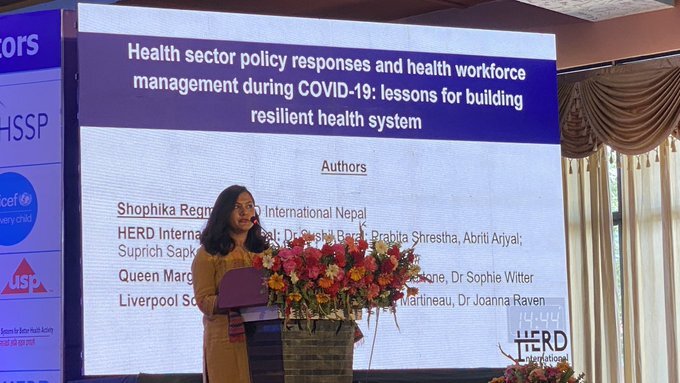



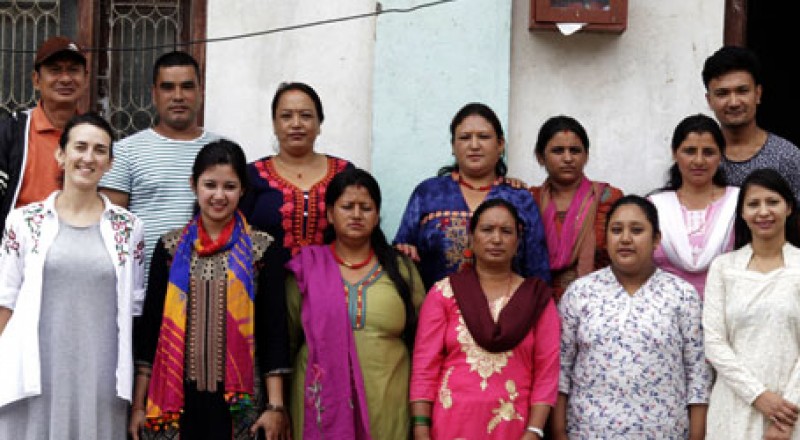
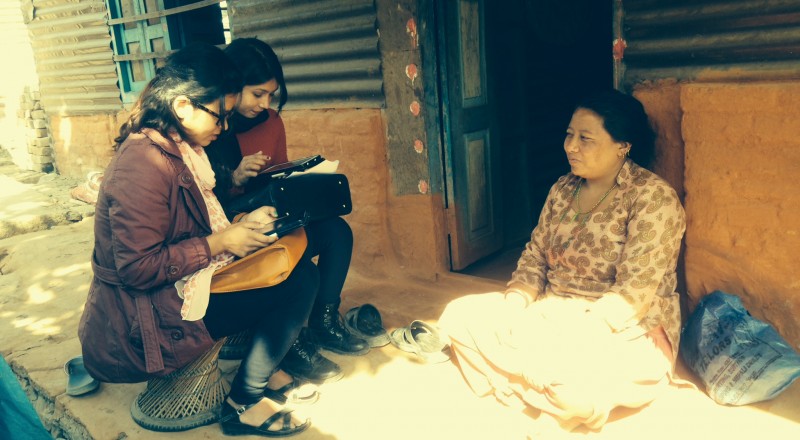
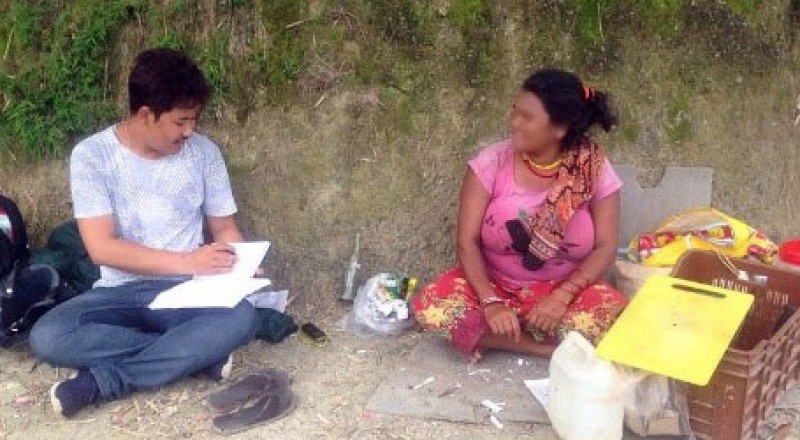

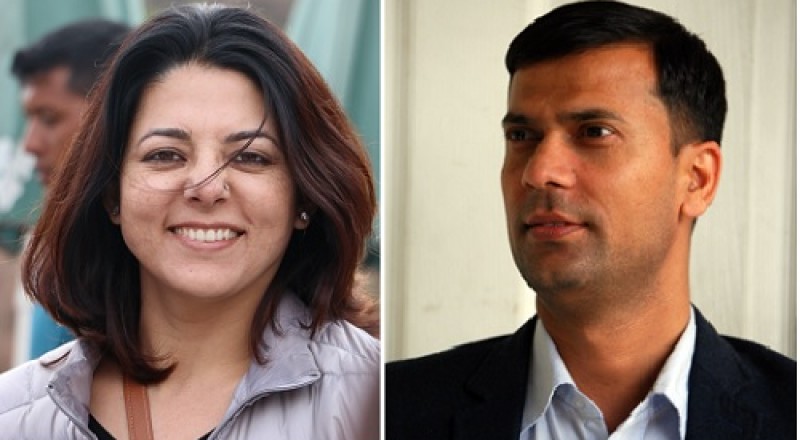



Comments (0)
No comments found.